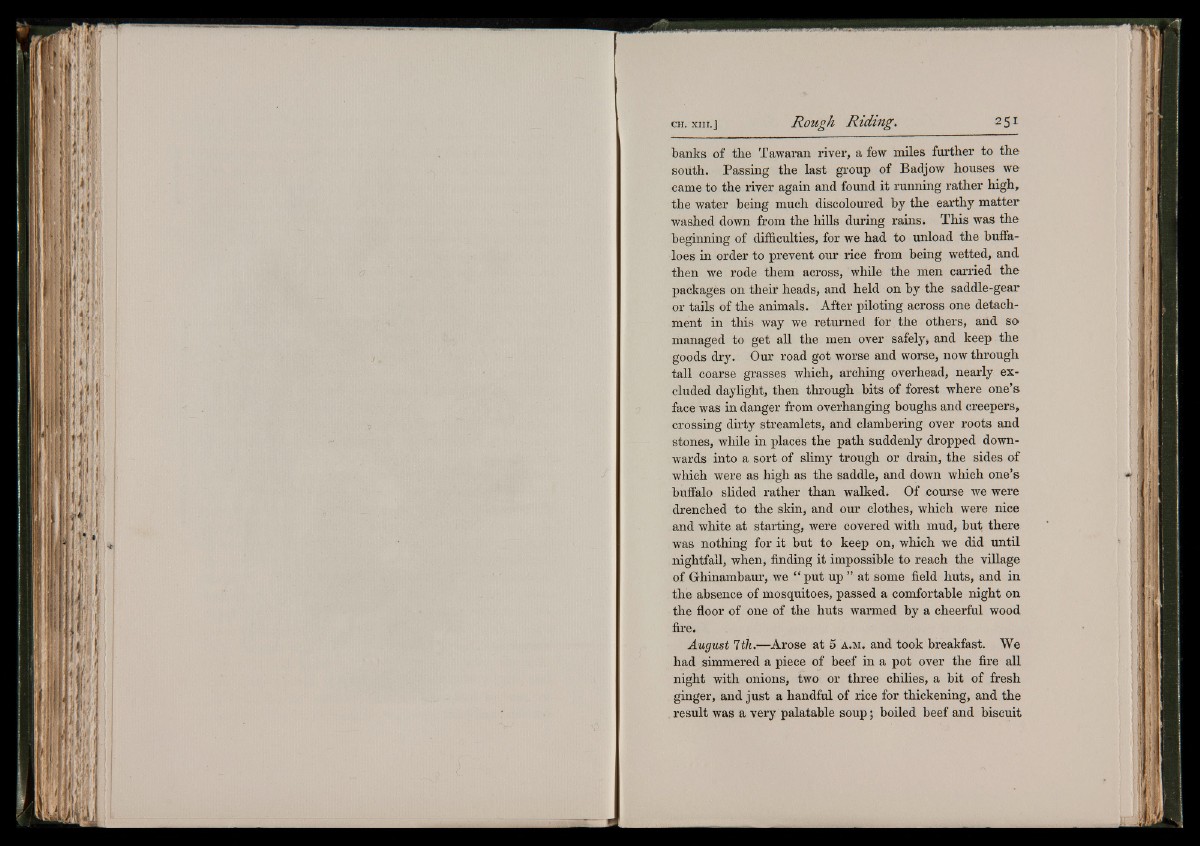
HfflE rt ‘Hi
B
in
I I
i III!
I MIS
i. *
S1' ll
banks of the Tawaran river, a few miles further to the
south. Passing the last group of Badjow houses we
came to the river again and found it running rather high,
the water being much discoloured by the earthy matter
washed down from the hills during rains* This was the
beginning of difficulties, for we had to unload the buffaloes
in order to prevent our rice from being wetted, and
then we rode them across, while the men carried the
packages on their heads, and held on by the saddle-gear
or tails of the animals. After piloting across one detachment
in this way we returned for the others, and so
managed to get all the men over safely, and keep the
goods dry. Our road got worse and worse, now through
tall coarse grasses which, arching overhead, nearly excluded
daylight, then through bits of forest where one’s
face was in danger from overhanging boughs and creepers,
crossing duty streamlets, and clambering over roots and
stones, while in places the path suddenly dropped downwards
into a sort of slimy trough or drain, the sides of
which were as high as the saddle, and down which one’s
buffalo slided rather than walked. Of course we were
drenched to the skin, and our clothes, which were nice
and white at starting, were covered with mud, but there
was nothing for it but to keep on, which we did until
nightfall, when, finding it impossible to reach the village
of Ghinambaur, we “ put up ” at some field huts, and in
the absence of mosquitoes, passed a comfortable night on
the floor of one of the huts warmed by a cheerful wood
fire*
August 7th.—Arose at 5 a .m . and took breakfast. We
had simmered a piece of beef in a pot over the fire all
night with onions, two or three chilies, a bit of fresh
ginger, and just a handful of rice for thickening, and the
result was a very palatable soup; boiled beef and biscuit